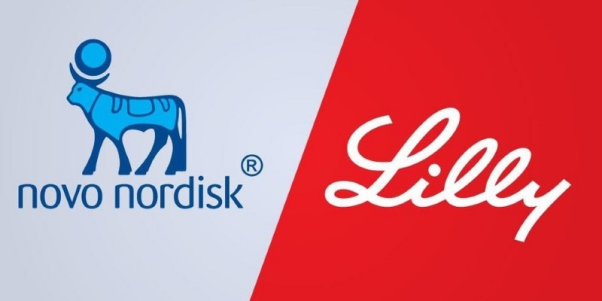The obesity drug market has seen remarkable growth, especially as healthcare providers and investors realize the potential of new treatments. This surge in obesity-related drug development is not only addressing a global health crisis but also significantly influencing healthcare stocks. Understanding this relationship is critical to appreciating how the market evolves and what it means for investors.
The increasing global prevalence of obesity is driving demand for effective medical treatments. In 2024, the global obesity rate continues to rise, with nearly 40% of adults classified as obese in several countries. This epidemic is leading to a surge in demand for pharmaceuticals that can help manage obesity, a condition linked to several chronic diseases like diabetes and cardiovascular issues.
Pharmaceutical companies have responded by investing heavily in the research and development of weight management drugs. Recent advancements in treatments, including GLP-1 receptor agonists like semaglutide, have shown promising results, leading to increased interest in this therapeutic area. These drugs' effectiveness has given hope to millions and created a robust and rapidly growing market.
This demand surge is having a pronounced effect on the healthcare industry, with obesity drug sales projected to exceed $50 billion annually within the next decade. Healthcare stocks, especially those of pharmaceutical companies with promising obesity treatments, have seen a significant boost as investors recognize the long-term potential for growth. The optimistic outlook draws capital from institutional investors, hedge funds, and individual traders.

Several major pharmaceutical companies are in charge of developing and commercializing obesity drugs. These key players are shaping the market and healthcare stocks' performance.
Novo Nordisk and Eli Lilly dominate the obesity drug market with their blockbuster weight-loss drugs, semaglutide (Wegovy) and tirzepatide. Both companies' stocks have surged due to the success of these treatments, driving investor optimism. The obesity drug market is expected to grow as demand for effective medical weight-loss solutions increases, further boosting their market positions.

Smaller biotechs like Rhythm Pharmaceuticals and Altimmune are entering the obesity drug market, presenting high-risk, high-reward opportunities for investors. Their stock performance is volatile, driven by clinical trial results and FDA approvals. Investors are watching closely for breakthroughs, but intense competition and uncertainty make this a dynamic and challenging area for investment.
The rapid development of obesity drugs has created a ripple effect throughout the healthcare sector. Investment trends show a marked increase in the valuation of healthcare stocks directly involved in obesity treatments. As these drugs demonstrate efficacy and safety, investor confidence in pharmaceutical companies has grown, leading to a surge in stock prices.
Stocks of companies involved in obesity drug development have seen considerable gains in 2024. Novo Nordisk, for instance, has witnessed a significant rise in its market value, reflecting investor confidence in its ability to lead the obesity drug space. Similarly, Eli Lilly has seen positive stock performance driven by the success of its tripeptide drug.
However, these gains are not limited to pharmaceutical companies. Suppliers, contract research organizations (CROs), and biotech firms developing complementary technologies also see increased valuations as they benefit from partnerships and supply agreements with more prominent drug makers.
Investors increasingly turn to healthcare ETFs and mutual funds to tap into the obesity drug market. These funds, including Novo Nordisk and Eli Lilly holdings, have delivered strong returns. The growing interest in obesity treatments also leads to niche funds focused on this market, offering potential gains while diversifying risk across the sector.

While the obesity drug market is poised for continued growth, several challenges could impact the market and healthcare stocks.
Like all pharmaceutical products, obesity medications must go through strict testing and approval procedures before being made available to the public. Regulatory hurdles, particularly from agencies like the U.S. Food and Drug Administration (FDA), can delay product launches or limit market potential. Negative trial results or unexpected side effects could lead to stock volatility, especially for smaller biotech firms relying on a single product.
The competitive landscape requires constant innovation, even for established players like Novo Nordisk and Eli Lilly. Any delay in clinical trials or regulatory approvals could impact stock performance, especially as investors watch for the next breakthrough in obesity treatments.

The high cost of obesity drugs is another significant challenge. While these medications have shown great promise, their accessibility to the broader population is still questioned. Many of these drugs are expensive, and insurance coverage varies widely. Pricing pressures, particularly from governments and insurance companies, could impact the profitability of these treatments in the long term, affecting the stock performance of the companies involved.
Despite these challenges, the future of the obesity drug market looks promising. Continued research and innovation will likely result in more effective and accessible treatments. As pharmaceutical companies refine their products and find ways to reduce costs, the market could expand to include a broader patient base.
Alongside pharmaceutical developments, personalized medicine and digital health tools are anticipated to be critical components in the future of obesity treatment. Companies that can successfully integrate digital solutions with pharmaceutical therapies may see considerable growth, driving further interest from investors.

The obesity drug market is profoundly impacting healthcare stocks, offering both opportunities and challenges for investors. Key players like Novo Nordisk and Eli Lilly lead the charge, while smaller biotech firms provide high-risk, high-reward options. The market's rapid growth, driven by increasing demand for obesity treatments, creates new investment opportunities.
However, investors must remain aware of the challenges, including regulatory hurdles, pricing pressures, and competition. As the market evolves, healthcare stocks tied to obesity treatments will continue to attract attention, making this an exciting space to watch in the coming years.